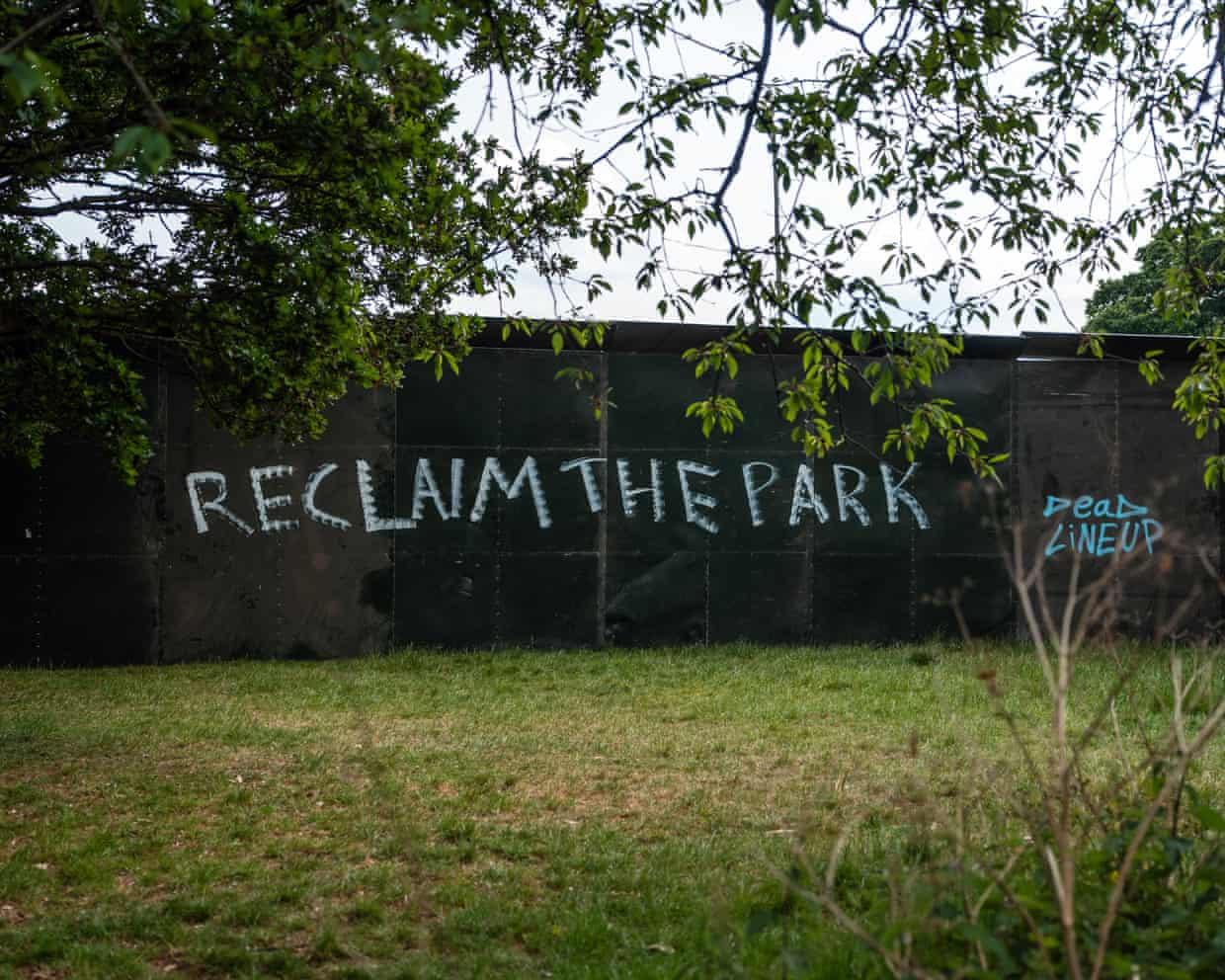Public parks have played a vital role in British society since the 19th century, symbolizing the Victorians’ dedication to enhancing the public good within shared spaces.
Today, however, differing viewpoints on the purpose of these municipal green areas are central to a contemporary controversy surrounding music festivals.
Recently, the debate over large music events in Brockwell Park, located in south London, has reignited important questions: What fundamental functions do public parks serve? Who should be allowed to utilize them, and for what duration?
On one side are the thousands of attendees who enjoy these festivals in south London. Opposing them is Protect Brockwell Park (PBP), a campaign group that includes notable figures like Mark Rylance. They recently secured a high court ruling against Lambeth Council, which had authorized festival organizers to use the park in a decision deemed “irrational.”
PBP argues for balance; while they believe festivals can be valuable, they contend that there should be limits on the number of events. Critics challenge the notion that a small but influential group should restrict access for the larger public.
Emma Warren, an author attending City Splash this weekend, notes that the high court decision coincides with a recent supreme court ruling affirming the legal right to wild camp on Dartmoor.
“This situation is being framed as a conflict between the necessity of communal space and the protection of nature,” states Warren. “However, I view it as part of a longstanding trend where a few individuals aim to restrict the access of a larger populace to these spaces.”
Conversely, Jen Hawkins from PBP believes the ruling sets an essential precedent. “In the past, there was a compromise where a few might be annoyed, yet it was manageable, and people could still access their cherished green areas,” she reflects. “Last year, however, marked a tipping point, as the park was seriously damaged throughout spring and summer.”
This weekend, the Mighty Hoopla festival will draw thousands to Brockwell Park, featuring performances by artists like Daniel Bedingfield, who will likely sing his hit “Gotta Get Thru This” with heightened significance given the current tensions faced by the organizers.
These discussions in Brockwell Park occur amid increasing costs associated with hosting events, resulting in a record number of 72 events being delayed, canceled, or shut down in 2024 due to rising ticket prices.
Despite the financial challenges, festivals continue to thrive. Events like Wide Awake and the Mighty Hoopla are among the seven scheduled in Brockwell Park, while Victoria Park in Tower Hamlets will host All Points East and other events. Gunnersbury Park is set to welcome acts including the Smashing Pumpkins, and Crystal Palace will feature concerts such as a sold-out show by Deftones and Weezer.
Hawkins asserts that PBP is not opposed to festivals. They propose rescheduling the dates for events in Brockwell Park to later in the year to keep it accessible during the summer and call for an ecological review of the events’ impact, along with the idea of “fallow” years between festivals.
John Rostron, CEO of the Association of Independent Festivals, emphasizes that organizers already face numerous requirements to obtain licenses. “You must engage with the local authority, which represents the community, to secure a license and comply with health, safety, and crime regulations,” he states.
“While extensive efforts are made to achieve community satisfaction, it’s impossible to meet everyone’s expectations,” he adds. “We tend to focus on the few who are dissatisfied.”
Warren poses the question: “Is it annoying to gather and enjoy music together, or is the true nuisance the complaints against such gatherings?” She reflects on how it appears culturally specific to allow a small, vocal group to inhibit collective celebration.
The debate about who utilizes public spaces is not confined to London; there’s an ongoing discussion in Liverpool regarding the Radio 1 Big Weekend’s impact on Sefton Park this summer.
PBP maintains that their efforts aim to hold Lambeth Council accountable and reclaim park space from large corporate entities that run some festivals. The Mighty Hoopla was acquired by Superstruct in 2023, which was itself purchased in the previous summer by American private equity firms KKR and CVC.
Some performers have withdrawn from Field Day, citing KKR’s investments in Israel, while activists have urged the festival to distance itself from the firm. In response, Mighty Hoopla released a statement opposing KKR’s unethical investments.
Hawkins contends that only a minimal portion of the revenue is reinvested in the park, with the bulk going to the companies involved. “They are the true beneficiaries of this arrangement,” she claims.
Currently, all planned events in Brockwell Park are set to proceed, starting with this Friday’s Wide Awake festival, following the council’s submission of a new application. However, potential legal challenges loom as the summer continues. “I genuinely have no idea what will unfold next,” Hawkins admits.
“I hope this situation establishes a precedent for future years regarding both Brockwell Park and potentially other public parks nationwide, ensuring councils cannot abuse their planning authority,” she adds.
Donatus Anyanwu, a councillor in Lambeth and cabinet member for stronger communities, remarked, “Overall, we believe our events contribute significantly to the cultural landscape of our vibrant, creative borough while allowing us to host London’s largest free community event, the Lambeth Country Show, safely and without charge.”

